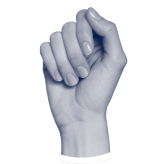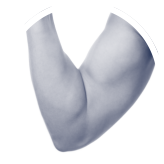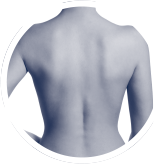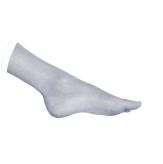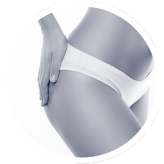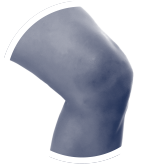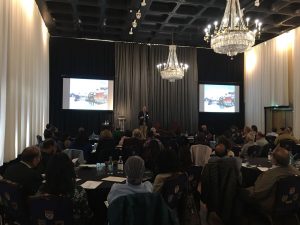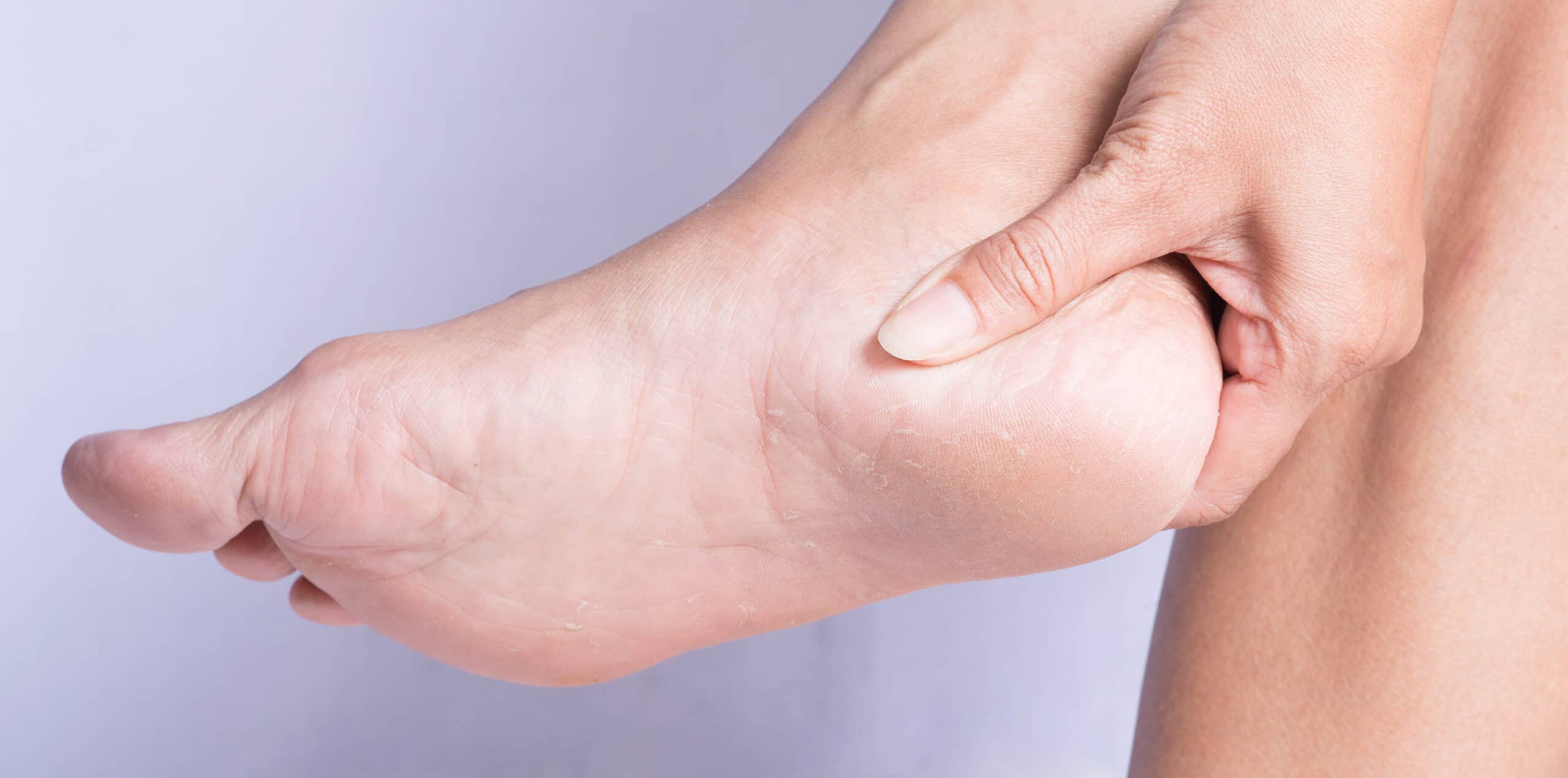
Mr Martin Klinke is a consultant foot and ankle surgeon at London Bridge Orthopaedics. In this article, he will discuss the common heel pain known as plantar fasciitis and what can be done to treat it.
Heel pain affects more than 10% of people in the UK and, in most cases, the pain is caused by some form of mechanical injury. The pain is triggered by small repetitive injuries that occur at a rate faster than the body can heal them. I am often surprised to see how long patients have been suffering from heel pain before they come to seek medical advice and treatment.
The heel is a specialised part of the body designed to absorb the impact of your body weight when walking, running or any other form of weight bearing exercise. When pain does develop, it can be very disabling and make every step a problem. Overall, it may affect your posture and cause further problems.
Types of Heel Pain
There are many types of heel pain but the most common one is called plantar fasciitis. Other causes are heel bursitis (inflammation of a fluid-filled fibrous sac), inflammation of the heel fat pad or stress fractures. When the pain is more towards the back of the heel, then the Achilles tendon might be responsible for the pain but may be an inflamed bursa.
Plantar Fasciitis – The Common Heel Problem
The plantar fascia is a thick band of tissue that connects your heel bone to your toes. It helps support the overall shape of your foot, especially when standing.
There are often multiple events that trigger heel pain. The pain generally develops over time and it can become severe and unbearable. The pain is often worst when you take your first steps on getting up in the morning, or after long periods of rest where no weight is placed on your foot. Gentle exercise may ease things a little as the day goes by. However, a long walk or being on your feet for a long time often makes the pain worse.
This can be exacerbated by stretching of the sole of your foot, such as climbing stairs.
Plantar fasciitis is more common in women, those who walk a lot and people who are overweight. Risk factors include your natural foot shape (flat or high arch), your activities (walking, running) and improper footwear.
The diagnosis can be made from taking your family history and by physical examination. Ultrasound is used to confirm the diagnosis and an X-ray is used to rule out any other causes of heel pain, such as a stress fracture. A bony spur may be seen on an X-rays but these have no diagnostic value and do not need to be removed.
Treatment – Everyday
There are a number of treatments that can help relieve heel pain and speed up your recovery. These include:
- resting your heel – avoiding walking long distances and standing for long periods especially avoiding hard surfaces wherever possible.
- regular stretching – stretching your calf muscles and plantar fascia are the most important parts of the treatment.
- pain relief – using an icepack on the affected heel and taking painkillers, such as non-steroidal anti-inflammatory drugs (NSAIDs) like ibuprofen.
- wearing well-fitted shoes that support and cushion your feet –running shoes are particularly useful.
- using supportive devices – such as orthotics or insoles that support your foot and cushion under heel.
- Night splints – soft or hard shell devices that keep your foot stretched overnight and reduce the pain experienced in the morning.
- Massage with a golf ball, tennis ball or spiky massage ball. This can be used whenever sitting down and you can massage your plantar fascia yourself thus reducing the pain
Treatment – For Severe Cases
In case of persistent pain further treatment options are available:
Ultrasound Guided Injection of Cortisone
This is performed by an experienced foot and ankle surgeon or radiologist. It often alleviates the symptoms but can be painful and could potentially (even though rare) cause a rupture of the plantar fascia.
Shockwave treatment
This is a non-invasive treatment with little side effects. It is certainly the best additional treatment option when everyday treatment does not work effectively. It entails 3-5 sessions and the maximal effect is felt after 6-8 weeks. In about 70% the pain is then eradicated.
Surgery
As plantar fasciitis is, in most cases, self-limiting, surgery is normally not recommended. For patients with extremely tight calf muscles and persistent pain, surgery to release of the calf muscle may be recommended. But it is extremely rare that one has to operate on the plantar fascia itself to offer pain relief.
Other treatments, such as PRP, alcohol or Cryotherapy have not shown any benefits and are not recommended by the British or American Foot and Ankle Societies.
Preventing Heel Pain
There are certain things that you can do to try to prevent plantar fasciitis, especially if you have had it before. These include:
- Regularly changing training shoes used for running or walking.
- Wearing shoes with good cushioning in the heels and good arch support.
- Regularly stretching the plantar fascia and Achilles tendon, especially before exercise.
- Avoiding exercising on hard surfaces.
At London Bridge Orthopaedics, we are able to check if your heel pain is caused by plantar fasciitis or from another source. We have excellent physiotherapists on site and we work in conjunction with specialised Podiatrists who are able to perform a biomechanical assessment and a proper gait analysis. They will also be able to discuss insoles and advise on the best footwear to help ease or get rid of your pain
London Bridge Orthopaedics offers the whole spectrum of treatments including the most successful shockwave therapy. Get in touch today.
Follow us on Facebook, Linkedin and Twitter for the latest health and orthopaedic news.


